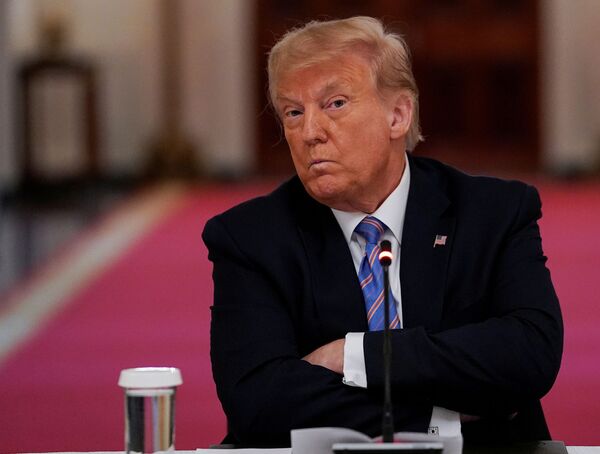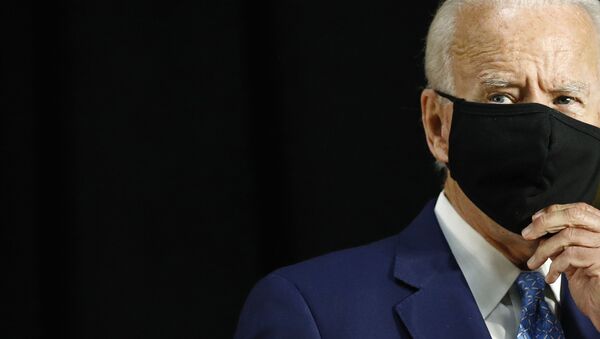Former Vice President and presumptive Democratic candidate Joe Biden has revealed his economic proposals should he win the White House this November.
Biden's plan call for a $700 billion investment in ‘Buy American’ and ‘Innovate in America’ initiatives, according to his campaign’s website and senior adviser Jake Sullivan’s comments to AP. The plan will reportedly be discussed in detail during Biden’s address at a metal works in Dunmore, Pennsylvania this Thursday.
The outline of manufacture- and jobs-targeting proposals suggests that a $400bn government procurement investment should be allocated for the purchase of US goods and services while $300bn would be invested in research and development, including on 5G technologies and artificial intelligence. According to the AP report, Biden has not yet identified how the proposed short-term initiatives will be financed.

For some, Biden's message and his rhetoric bear some similarities to Donald Trump’s 2016 “Make America Great Again” campaign slogan and his emphasis on employment in American manufacturing. But Biden aides have denied this, according to AP, arguing that the Democratic candidate’s appeal is more “coherent” than Trump's.
The two do indeed have some differences in their economic visions, especially concerning corporate tax cuts, which were proposed by Trump back in 2016 and subsequently backed by the Republican party. These have been criticised by Biden as encouraging "offshoring” practices.
But Biden’s economic plan does suggest that the former vice president is currently focussed on winning back the working-class electorate lost by the Hillary Clinton and the Democrats in 2016. Indeed there are seemingly strong similarities between Trump’s past and Biden’s current proposals:
- ‘Made in All of America’: Biden’s slogan “Made in All of America” by “all of America’s workers” may cause some flashbacks to 2016. In particular, his campaign proposes bolstering the US government’s regulatory power by tightening existing “content laws” over “made in America” products. Donald Trump might not have been that specific, but then he was primarily running on a platform of boosting America’s competitiveness in relation to other states, especially China.
- Manufacturing sector: “He does not buy for one second that the vitality of US manufacturing is a thing of the past”, Joe Biden’s campaign website reads, suggesting that the presumptive candidate will try to make “smart investments” to move some production to the Unites States. This chimes with Trump's 2016 campaign pledges and it is the manufacturing sector that has firmly been the president's focus since taking office.
- Jobs Creation: Most presidential candidates promise to create new jobs, but Biden goes as far as to promise “at least 5 million” new ones through manufacturing and innovation. Trump also promised to create new jobs back in 2016, especially in energy-related sectors, and he achieved this. If it were not for the coronavirus pandemic, he might still be bragging about record low unemployment numbers among American workers, and a thriving manufacturing sector. For Joe Biden, it is time to “bring jobs back” – a formula which resembles Donald Trump’s pledge in relation to outsourcing manufacturing to states like China and Mexico.
- Trade strategy with China: “Take aggressive trade enforcement actions against China or any other country seeking to undercut American manufacturing through unfair practices, including currency manipulation, anti-competitive dumping, state-owned company abuses, or unfair subsidies”. No, it was not Donald Trump who said that back in 2016 but rather Joe Biden himself in his recent manifesto. Trump has repeatedly attacked China, promising to fight Beijing’s “unfair” trade practices and make America a force to be reckoned with. Biden’s economic plan, which calls for a tighter control over any trade deals, appears to be based on similar logic.
The upcoming address in Dunmore will be the first opportunity for many to hear Joe Biden’s economic vision, as much of his focus in recent months has been on attacking Trump and his Democratic rivals.



